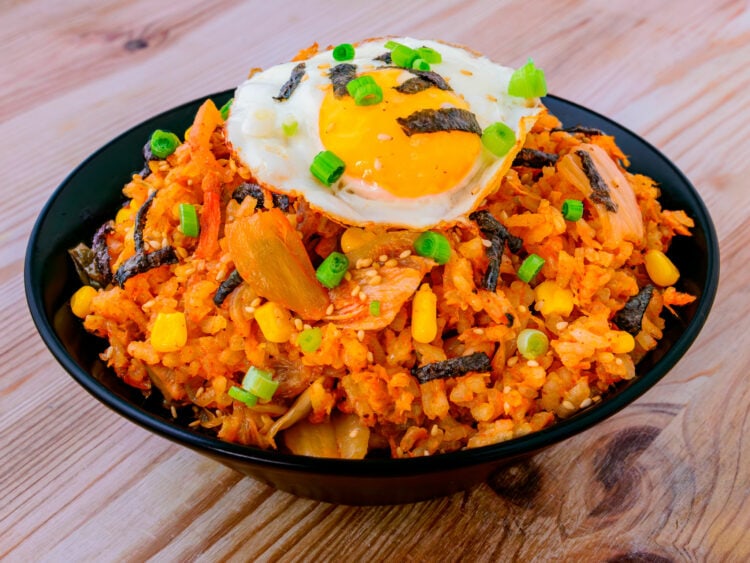A delicious Korean tuna fried rice, elevated by ultra-flavorful kimchi and ready in minutes.
Kimchi jjampong bokkeumbap (김치참치볶음밥) is a beloved Korean dish of fried rice, kimchi, and canned tuna. It comes together quickly, making it perfect for a family dinner or a speedy lunch.
Kimchi, a cornerstone of Korean cuisine, lends its signature tangy, fermented flavor. Tuna contributes a tender texture and subtle briny notes. For deeper complexity, we stir in gochujang (고추장), a spicy Korean chili paste, and of course a drizzle of sesame oil.
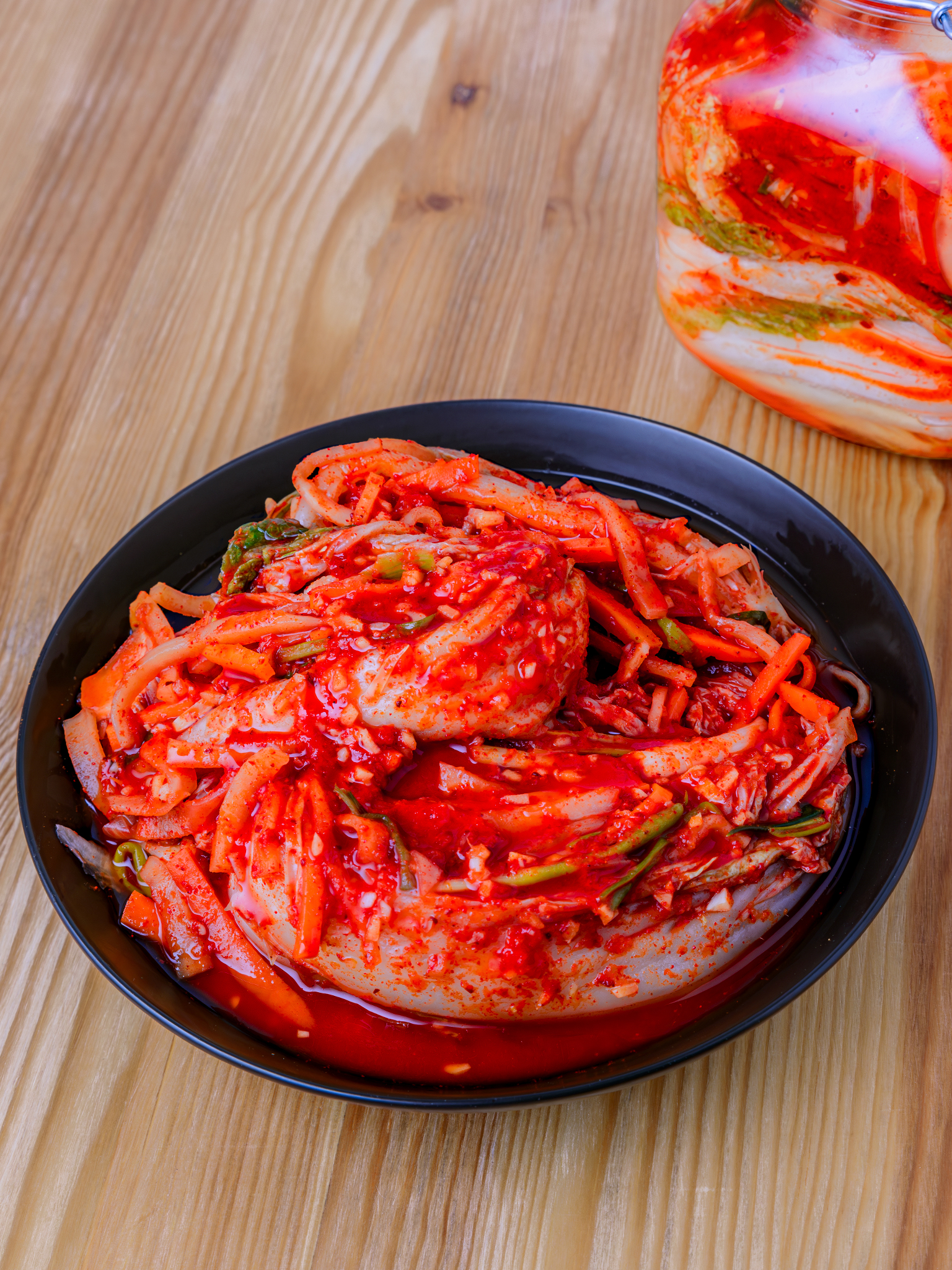
Feel free to customize your tuna rice with extras such as onions, carrots, eggs, or even gim (김), dried seaweed sheets (also known as nori). Pair the dish with a crisp salad and a splash of soy sauce for a well-rounded meal.
Tips for Perfect Korean Tuna Rice
The kimchi
Kimchi is the undisputed star of this dish. For the best flavor, use kimchi that has fermented for at least two weeks, often called “aged kimchi.” If yours is still young and mild, stir in 1/4 to 1/2 teaspoon of rice vinegar to sharpen its acidity. Ultimately, just like with a Bibimbap recipe, it is entirely up to you and your taste buds to decide what you include.
The tuna
Choose canned tuna packed in oil or water, according to your preference. Tuna in oil offers a richer, more nuanced flavor, whereas tuna in water tastes cleaner and lighter.
The rice
In Korea, cooks typically use short- or medium-grain japonica rice, which is shorter, rounder, and stickier than long-grain indica varieties. Calrose and Koshihikari rice, also known as sushi rice, are great examples. They are also used for Korean sushi, Kimbap
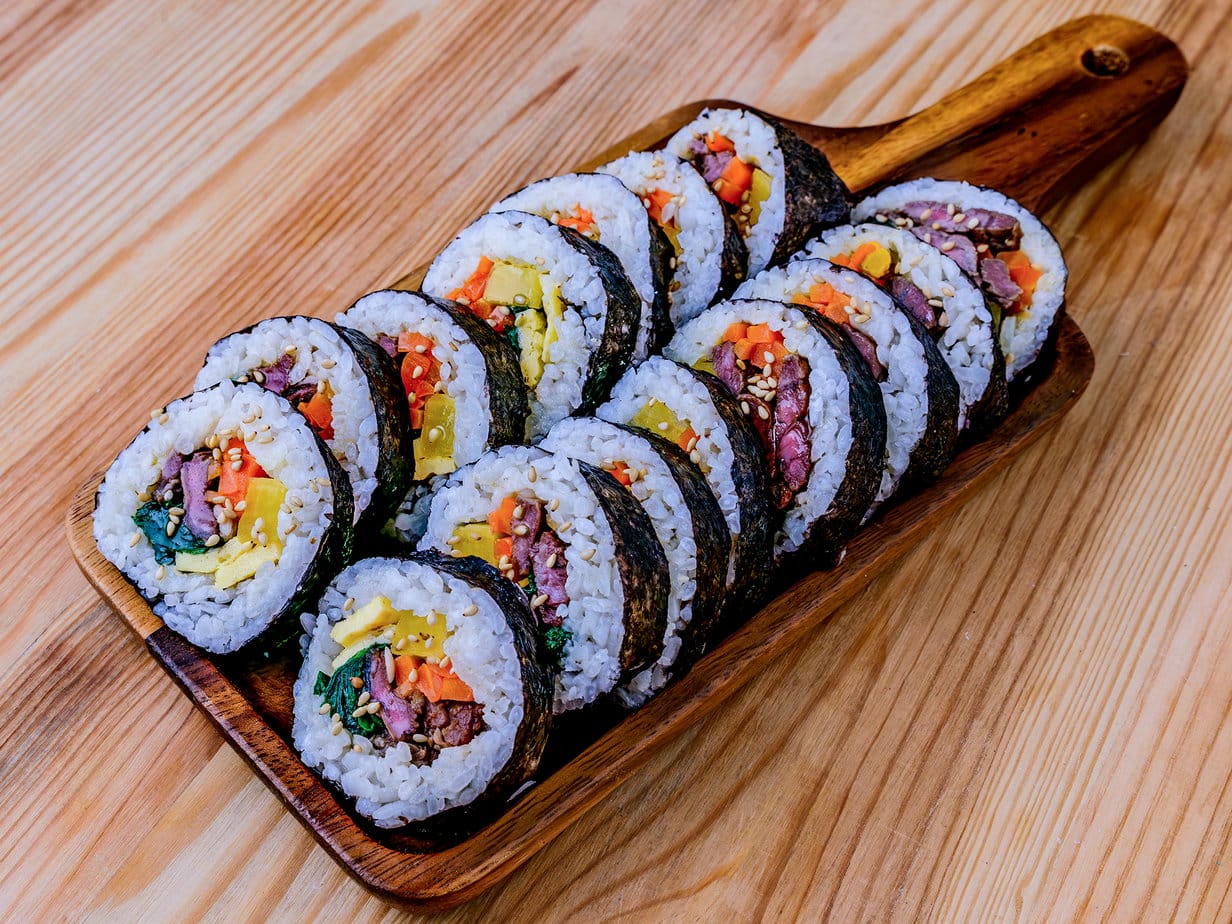
If you don’t have any on hand, you can opt for a long-grain rice such as Jasmine or Basmati. However, I personally prefer short-grain rice because it lends the dish a gentle sweetness and a greater sense of satiety.
The perfect rice texture
For optimal texture, use rice cooked the day before and chilled in the fridge. If you don’t have any, cook a fresh batch with about 10% less water. The drier grains are ideal for fried rice.
The finishing touch: a gourmet garnish
The classic topping for Kimchi Bokkeumbap is a fried egg. You can also sprinkle shredded dried seaweed, toasted sesame seeds, or finely chopped green onions over the dish. A pinch of Japanese furikake is just as delicious.
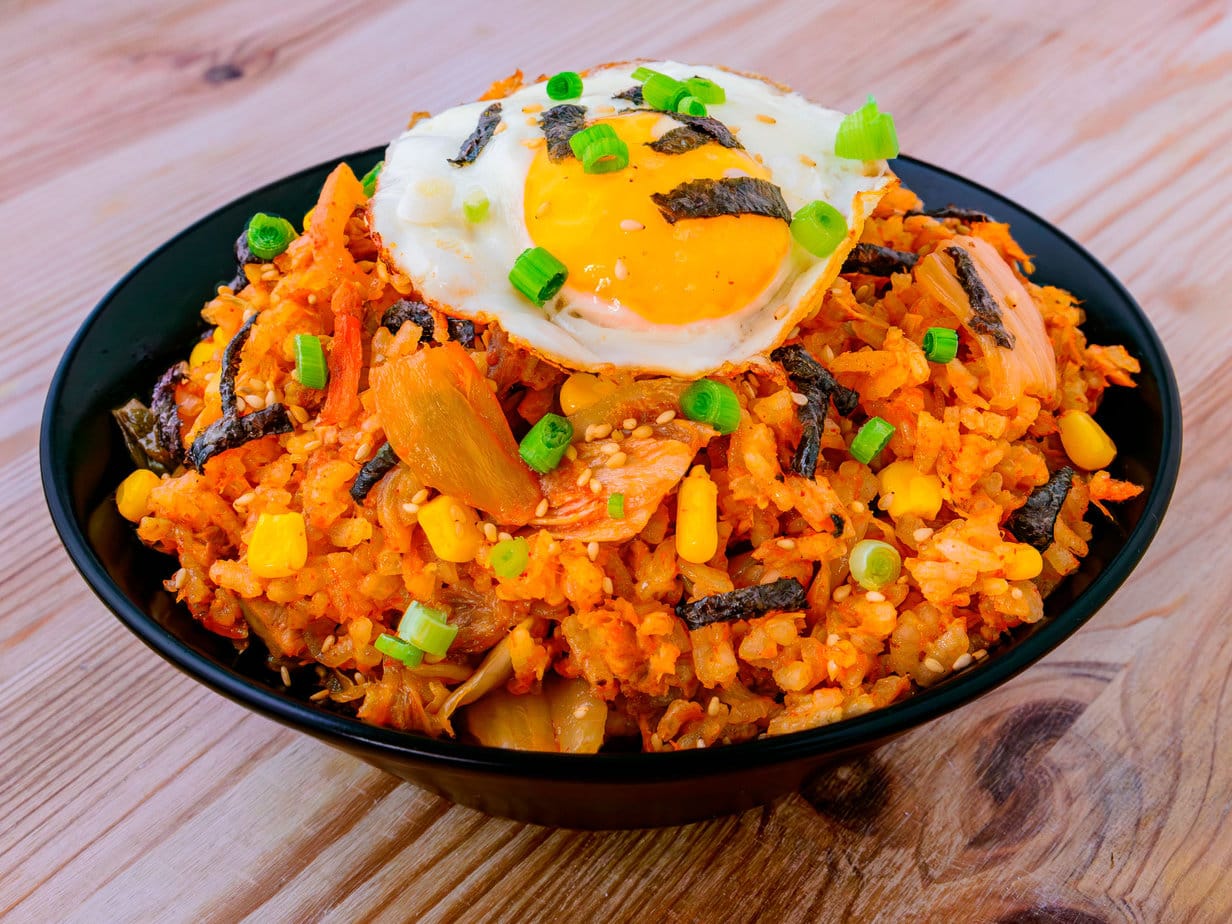
Korean Tuna Fried Rice
Equipment
- 1 Wok
Ingredients
- 150 g kimchi cut into small pieces
- 200 g tuna canned, drained. Preferably canned in oil.
- 400 g sushi rice cooked, rinsed 6–7 times before cooking. 100 g dry weight equals roughly 200 g cooked weight
- 50 g corn canned, drained
- 1 tablespoon sesame oil preferably toasted
- 4 cloves garlic minced
Sauce
- 1 tablespoon kimchi juice
- 1 tablespoon gochujang reduce according to your heat tolerance
- 1.5 tablespoon light soy sauce
- 1.5 tablespoon brown sugar
Garnish
- Green onions thinly sliced
- Sesame seeds
- Sheets nori cut into strips
- 2 eggs fried, 1 per plate
Instructions
- Add the sauce ingredients to a bowl and mix well. Set aside.1 tablespoon kimchi juice, 1 tablespoon gochujang, 1.5 tablespoon light soy sauce, 1.5 tablespoon brown sugar
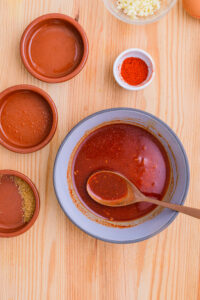
- Heat a wok over medium-high heat and add a neutral cooking oil.
- Add the garlic and stir-fry for 1 minute.4 cloves garlic
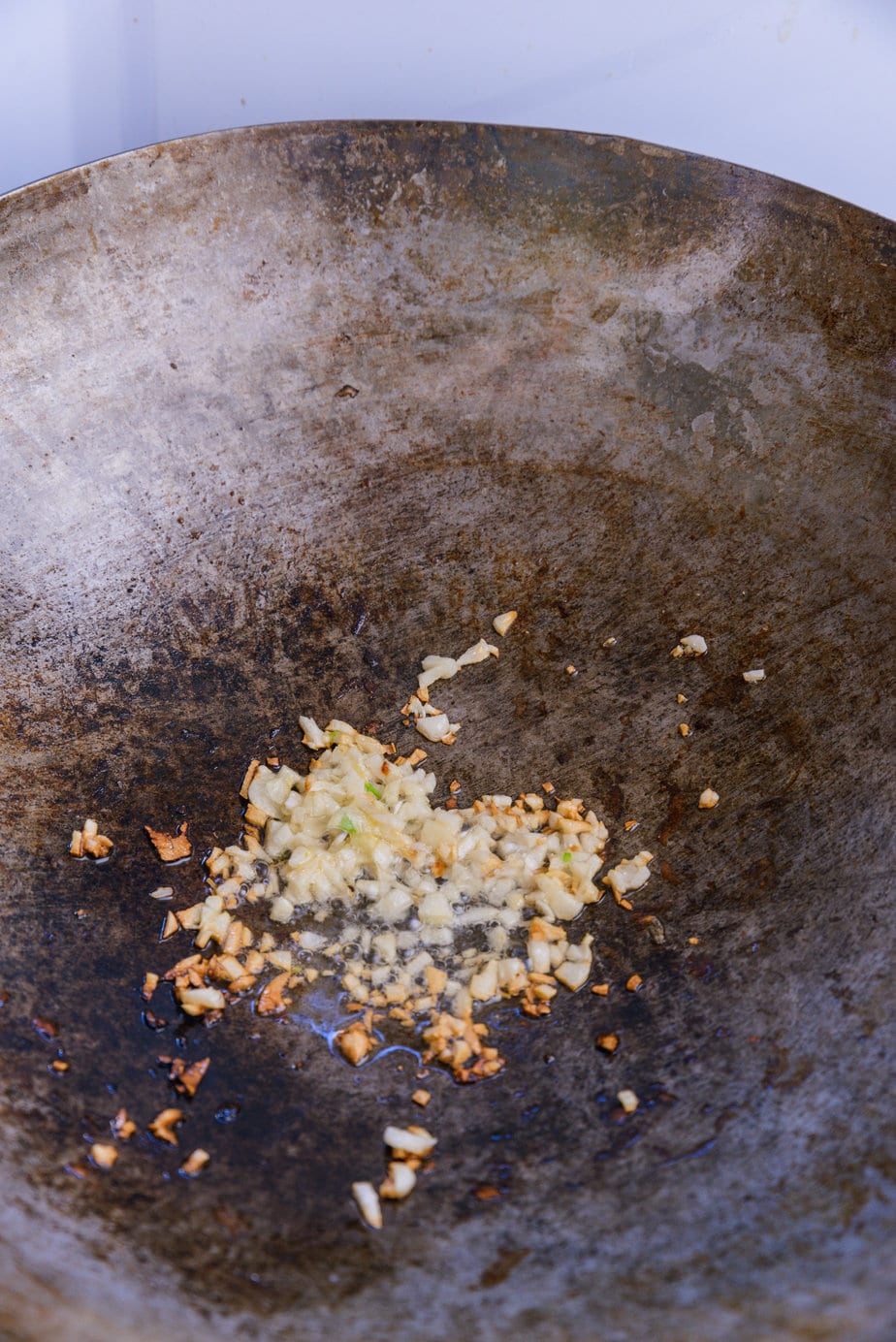
- Add the kimchi and stir for 2–3 minutes until softened.150 g kimchi
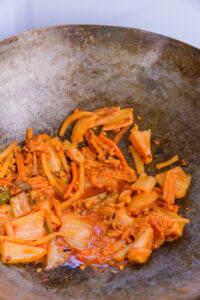
- Add the canned tuna and mix until everything is well combined.200 g tuna
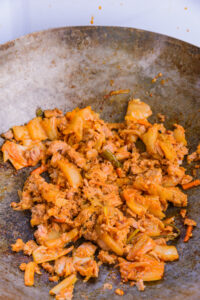
- Add the rice and the sauce, and toss thoroughly.400 g sushi rice
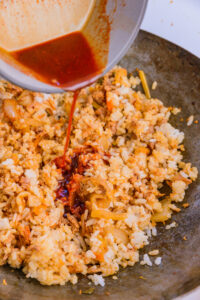
- Add the corn and sesame oil. Toss until everything is well combined. Serve.50 g corn, 1 tablespoon sesame oil
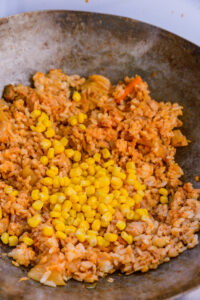
- Garnish with sesame seeds, green onion and strips of dried seaweed. Place a fried egg on each serving.Green onions, Sesame seeds, Sheets nori, 2 eggs
Notes
- Preferably use canned tuna in oil, not water
- 100g dry weight equals roughly 200g cooked weight
Nutrition
Culinary sources
I adapted this recipe from the English-language blog “My Korean Kitchen”; the main changes were the addition of garlic and sesame oil and some adjusted proportions.
